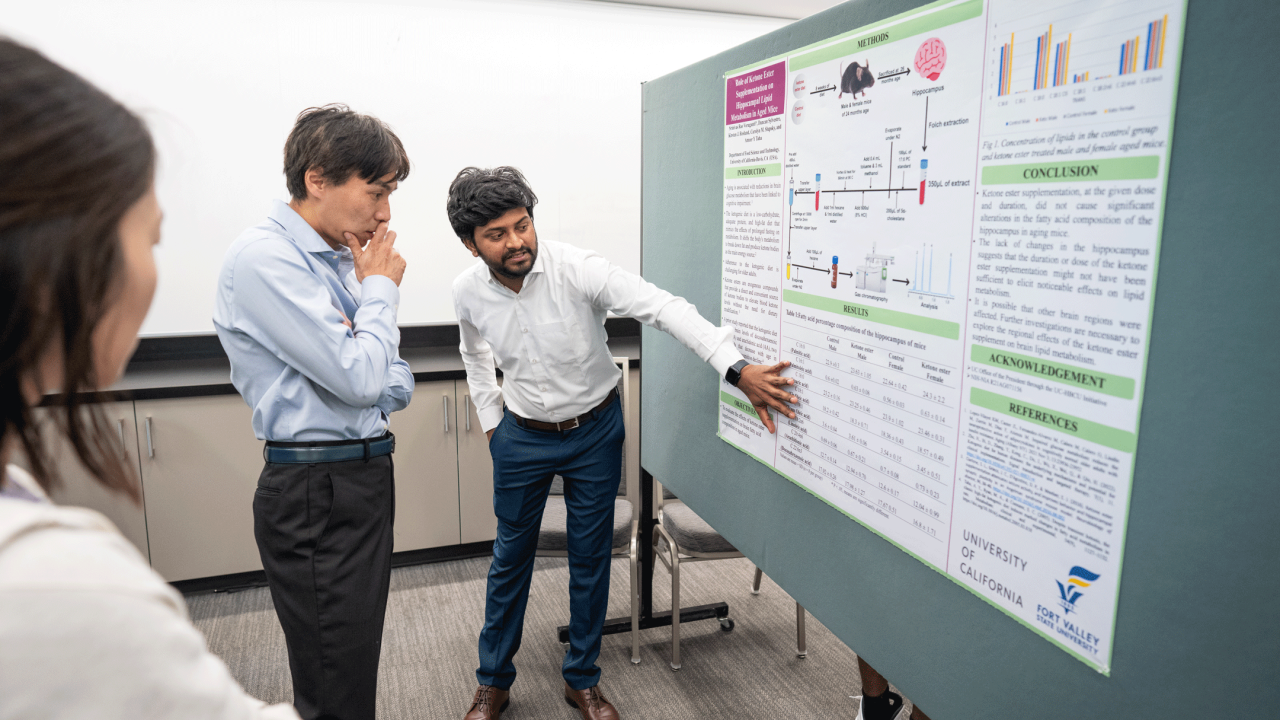
Beckles helps lead summer program for diverse students
Plant agricultural biology program hosts scholars from historically Black colleges and universities
This summer, four students from historically Black colleges and universities, or HBCUs, came to UC Davis for seven immersive weeks of research, field work, training and mentoring.
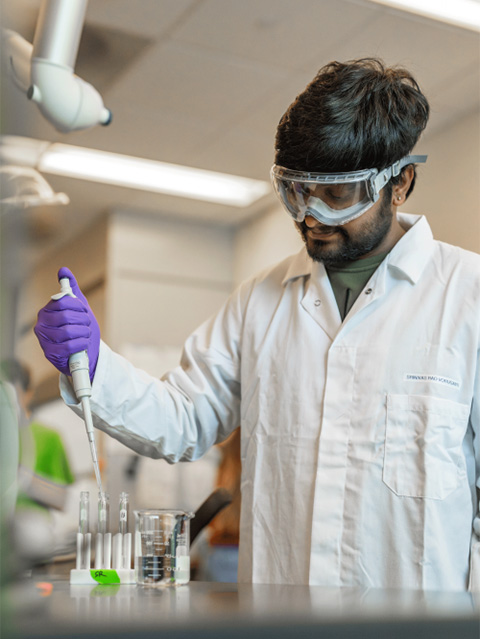
The students from Fort Valley State University in Georgia and Florida A&M University worked with faculty studying plant, food and other sciences as part of the Plant Agricultural Biology Graduate Admissions Pathways, or PABGAP, program.
PABGAP, which started as a pilot program in 2016 and was fully funded in 2017, matches students with faculty members who are encouraged to be lifelong mentors. Students are paid a stipend to conduct research over the summer session, live in a dorm with students in other summer research programs, get help applying to graduate schools and are offered professional development classes and resources.
“We’re here when they need us, at any point in time from their enrollment into the program to when they pursue their Ph.D. and beyond,” said Diane Beckles, a professor in the Department of Plant Sciences and a principal investigator for the PABGAP program.
Each student also receives a bike, helmet and safety training to traverse campus. Adjusting to life on a big campus and cultural differences, as well as navigating academic norms and overcoming imposter syndrome, are also addressed.
At the end of summer, the students present their research at a symposium on campus, and the program pays for one family member to attend. They are also eligible to attend a national conference to present their summer research.
Beckles and academic coordinator Carole Hom manage the program. “We help the students to navigate an environment that may seem foreign to them,” Beckles said.
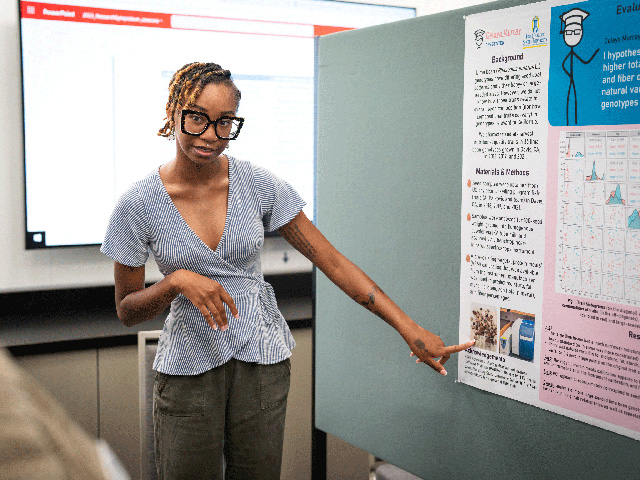
Financial assistance
For those who attend the summer program and get accepted to graduate school, the University of California’s Office of the President also funds two years of research. Four former PABGAP fellows are enrolled in UC Davis Ph.D. programs, and two more have enrolled for the fall.
“Many of our students are coming from backgrounds where money is a huge barrier to pursuing a Ph.D.,” Beckles said. “We hope that the fear and worry of financial support becomes less of an issue.”
For Marisha Towner, 46, the $5,000 stipend and covered travel costs for the summer program were key, especially with a mortgage to pay at home.
“Knowing I had that kind of support before I came here helped me get here,” said Towner, a former nurse and single mother of two who also fostered six children. “They put me at ease because they said, ‘We’re here, we got you.’"
At UC Davis, Towner studied how plants respond to a specific type of fungi in organic and conventional soil settings. She is a junior at Fort Valley studying plant science and is also a Master Gardener who mentors junior master gardeners as part of elementary school 4-H programs.
Towner hopes to go to graduate school, and UC Davis is on her list of schools to consider. “It’s a blessing,” she said. “The things that UC Davis provides here are phenomenal.”
Other summer students studied the effect of lipids on mice brains, grapevine response to water deficiencies and lima bean diversity.
“We’re proud of the diversity of research that students can be exposed to at UC Davis,” Beckles said, “and are thankful to the faculty who are willing to mentor them.”
Inspired by HBCUs
PABGAP is one of the graduate admissions pathway programs funded by the University of California’s Office of the President, or UCOP, under the UC-HBCU Initiative. It is one of many diversity, equity and inclusion efforts underway at UC Davis.
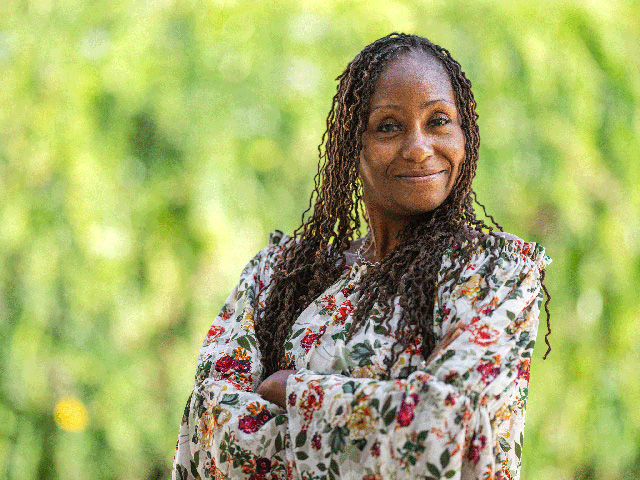
The way HBCUs support their students in terms of small class sizes and the personal relationships among faculty and students is something PABGAP tries to replicate. It came about after multiple visits to the HBCUs.
“What makes the program special is that all the elements that make a difference in terms of retention have been considered,” Beckles said. “There is a practice and understanding of what it takes for success.”
Faculty from the HBCUs and UC Davis meet periodically and stay in touch about upcoming and current students, as well as alumni.
“We’re not pulling the student away from the HBCU,” Beckles said. “We’re just providing another path toward a Ph.D. while maintaining their HBCU connections.”
Examining career options
Eryse White, 20, a junior at Florida A&M majoring in agriculture science, works on cultivating native yeasts from Florida grapevines to potentially create new wine styles. She studied “climate change and how viticulture is going to adapt” at UC Davis.
White thinks she wants to go into winemaking but hasn’t decided whether to pursue a higher degree. A panel on pivoting career goals was especially helpful, as was the chance to work closely with faculty.
“It’s nice to have this relationship where I’m talking about my career and what I want to do,” White said. “I didn’t really know the opportunities that I could have.”
For Beckles, PABGAP is a necessary pipeline program and it’s a mission that resonates deeply with the scientist, who grew up financially poor in Barbados. She was able to take advantage of socialized education that eventually took her to the University of Cambridge in England.
“Given my background, it’s a miracle that I’m here at UC Davis,” Beckles said. “I believe in PABGAP and all of the other equity-minded programs. The program requires care and attention. It’s a great responsibility. It’s something I have to do.”
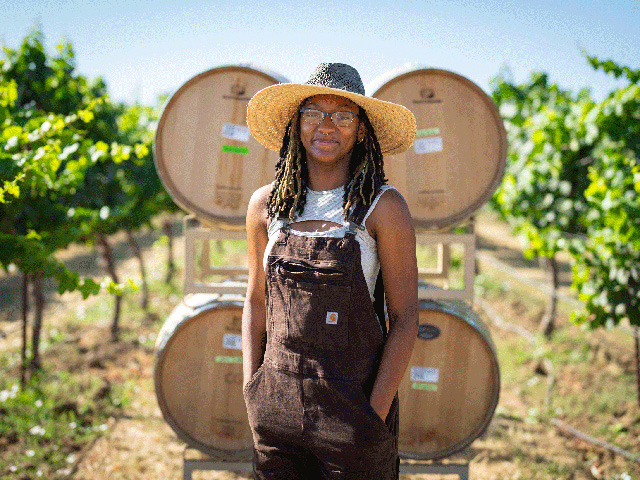
Media Resources
- Diane Beckles, Department of Plant Sciences, dmbeckles@ucdavis.edu
- Emily C. Dooley, College of Agricultural and Environmental Sciences, 530-650-5807, ecdooley@ucdavis.edu
Media Resources
- Diane Beckles, Department of Plant Sciences, dmbeckles@ucdavis.edu
- Emily C. Dooley, College of Agricultural and Environmental Sciences, 530-650-5807, ecdooley@ucdavis.edu
